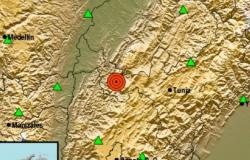In recent weeks we have seen that the commercial war has meant a deep change for businesses such as Temu or Shein. They have also affected Netflix herself, OA Apple. Of course, whole countries have also been affected, although some less than others. Now, some filtered documents have revealed something certainly weird. when Washington announced the tariffs, several nations did the same: hire Starlink, by Elon Musk.
Satellite diplomacy. I told it exclusively the Washington Post a few hours ago. The Trump administration has deployed a strategy that intertwines tariff pressure, economic diplomacy and business promotion with its own name: Starlink, Elon Musk’s satellite Internet service. Diplomatic cables obtained by the medium reveal that several developing countries accelerated licenses and permits for the Starlink operation after receiving threats of punitive tariffs or amid commercial negotiations with Washington.
The most illustrative case occurred in Lesoto, where the government granted Starlink its first national license just two weeks after Trump imposed a 50% tariff on imports from that country, and explicitly did it as a gesture of goodwill towards the United States in the framework of bilateral negotiations.
Sponsored global expansion. The phenomenon is not isolated. The post that from India to Bangladesh told, through Somalia, Vietnam, the Democratic Republic of the Congo or Cambodia, the cables obtained show how US diplomats have actively promoted the regulatory approval of Starlink. Although in no case is a direct requirement of favors documented in exchange for tariff relief, the instruction of high positions such as Secretary of state Marco Rubio is clear.
As? Using diplomatic missions to facilitate the opening of US companies (especially Starlink) as part of the effort to “maintain and extend their advantage as pioneers” against Chinese and Russian competitors in space. Even meetings were reported in Türkiye, Djibouti and Mali where ambassadors and officials presented arguments favorable to Starlink’s entry on behalf of national security and the technological leadership of the United States.

Disguised commercial negotiations. In Cambodia, the pattern was repeated with relative clarity. After the imposition of a 49%tariff, local officials met with the US Chamber of Commerce in search of diplomatic exits. One of the “suggested gestures” was to allow Starlink entry and facilitate access without tariffs to Ford vehicles. Another previous cable already showed that the Cambodian government contemplated to promote Boeing and Starlink as a counterweight in fear of commercial sanctions.
The same happens in India, where Starlink regulatory approvals have accelerated with the expectation that they will contribute to consolidate a commercial agreement with the White House. As a diplomatic source explained to the post, these movements are not openly discussed as formal conditions, but they are understood as lubricants Essential politicians to maintain fluid bilateral relations.
Multimillionaire business. From the State Department, the public defense of these maneuvers is based on the narrative of American technological supremacy against strategic rivals. In their statements, official sources have described Starlink as “a revolutionary American product” that provides connectivity to remote areas of the world and should be favored by “all patriot.”
-The geostrategic argument is reinforced with the explicit threat that, if the United States does not support their own technological leaders, it will be Chinese companies who fill that emptiness. Experts in the sector such as Evan Swarztrauber agreed: promoting Starlink is an act of containment against Beijing. In fact, a good part of government enthusiasm by the Musk network is justified in its role as a direct counterweight to satellite suppliers from China and Russia, perceived as threats to national security.
Conflict of interest. No doubt, the link between the American state and Starlink raises ethical questions. Elon Musk, in addition to the owner of the company, is a Trump political ally and contributed 277 million dollars to republican campaigns. He currently occupies a position within the government by supervising Doge, although that yes, he has declared that he will soon resign.
This overlap between private interests, political support and official diplomacy has caused many countries to distinguish between Washington’s demands and Musk’s interests. As the researcher W. Gyude Moore warns, in many African governments “it would be very difficult to separate” tariff pressures from the impulse to Starlink, especially knowing that any resistance to Musk business could be perceived as a challenge to the White House.

Between state and company. The American medium told that, in essence, Washington’s strategy converts the international expansion of a private company into a direct instrument of its foreign policy. Although both the Trump and Biden administration had promoted the use of low orbit satellites (Leo) to connect embassies and remote areas, leaked cables show that the current emphasis not only aims to adopt this technology, but to persuade allied countries to choose specific services such as Starlink.
Under Trump, the cables sent by Rubio amplified that pressure when cataloging Chinese and Russian networks as security threats, which allowed to justify the promotion of US suppliers in those geopolitical terms. Perhaps for this reason, beyond rhetoric, what emerges is an increasingly diffuse photo between national and corporate interest, where barriers between diplomacy, market and political favoritism are diluted in favor of technological leadership.
Imagen | Mike Lewinski
In Xataka Mobile | Starlink makes it cheaper to have satellite internet: it reduces more than 100 euros its connection kits
In Xataka Mobile | The blackout was the expected great fire test for satellite connection: Starlink approved with note






